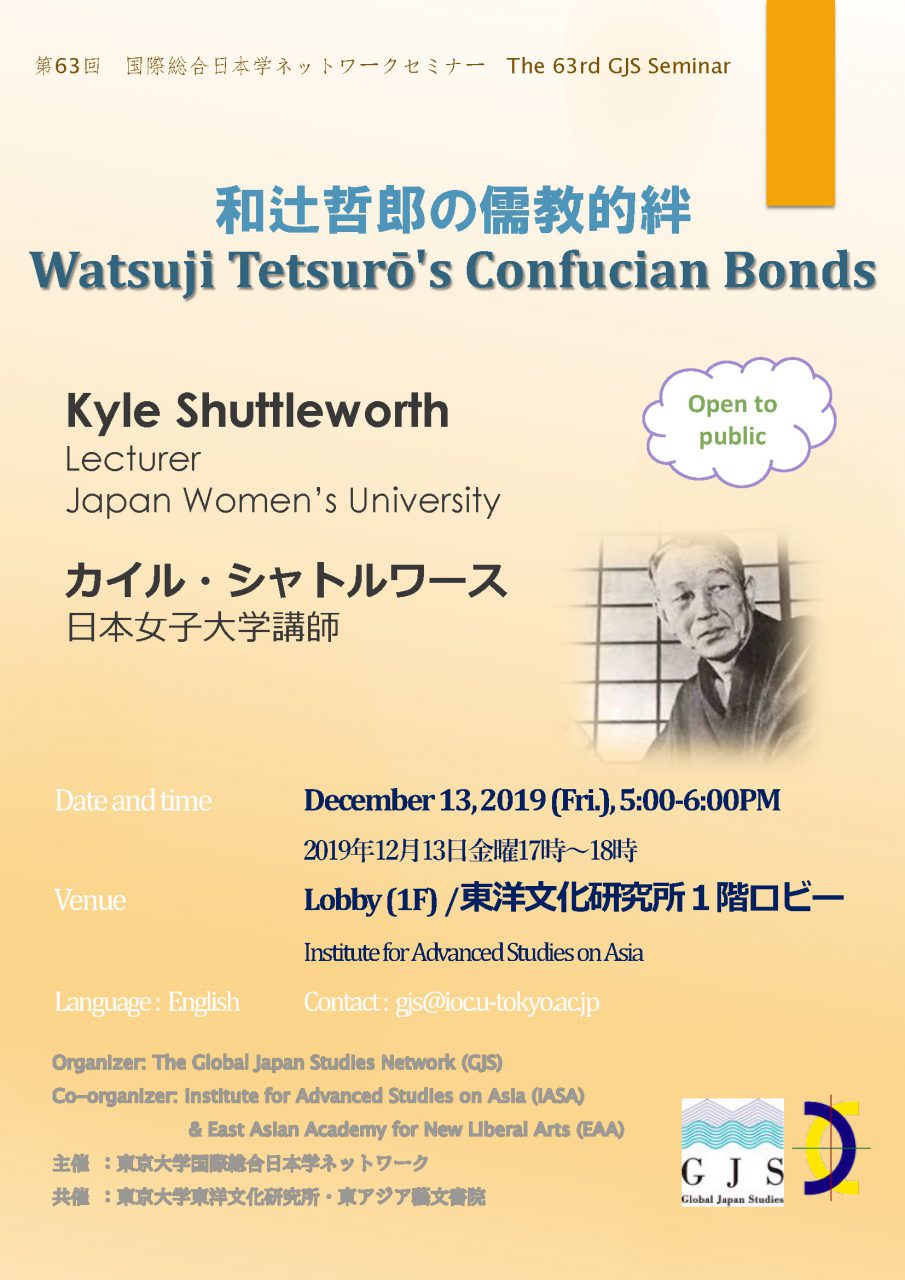東京大学国際総合日本学ネットワーク(GJS)主催、東京大学東洋文化研究所(ISAS)・東アジア藝文書院(EAA)共催で次のイベントを開催します。
日時: 2019年12月13日(金)17:00~18:00
会場: 東京大学東洋文化研究所
ロビー(1階)
発表者: カイル・シャトルワース(日本女子大学講師)
使用言語: 英語
発表概要: Within contemporary scholarship, Watsuji Tetsurō has been criticised on the grounds that his thought is conservative and outdated, and that the political application of his ethics leads to totalitarianism. These criticisms arise from Watsuji’s incorporation of the five Confucian bonds (五常). In particular, these problems are a consequence of the espousal of the relations between sovereign and subject, and husband and wife within Watsuji’s ethical organisations (人倫的組織). As these hierarchical relationships point towards the subjugation of citizens by the sovereign, and the inferiority of the wife to her husband, they are opposed to the values of liberal democracy, and as such, these facets present a cultural-political barrier to the wholesale endorsement of Watsuji’s ethics by many theorists in the West. However, in this presentation it is my aim to suggest that these criticisms can be overcome without significantly altering Watsuji’s theory. In order to achieve this end, I will draw upon the New Confucian argument that Confucianism and democracy are not radically opposed, but compatible. By reframing the Confucian elements in Watsuji’s thought within a New Confucian framework, it is thereby my intention to deconstruct the cultural-political barrier which leads many western scholars to denounce Watsuji’s work, and to uphold his ethical theory as an important and applicable philosophy of our times.









